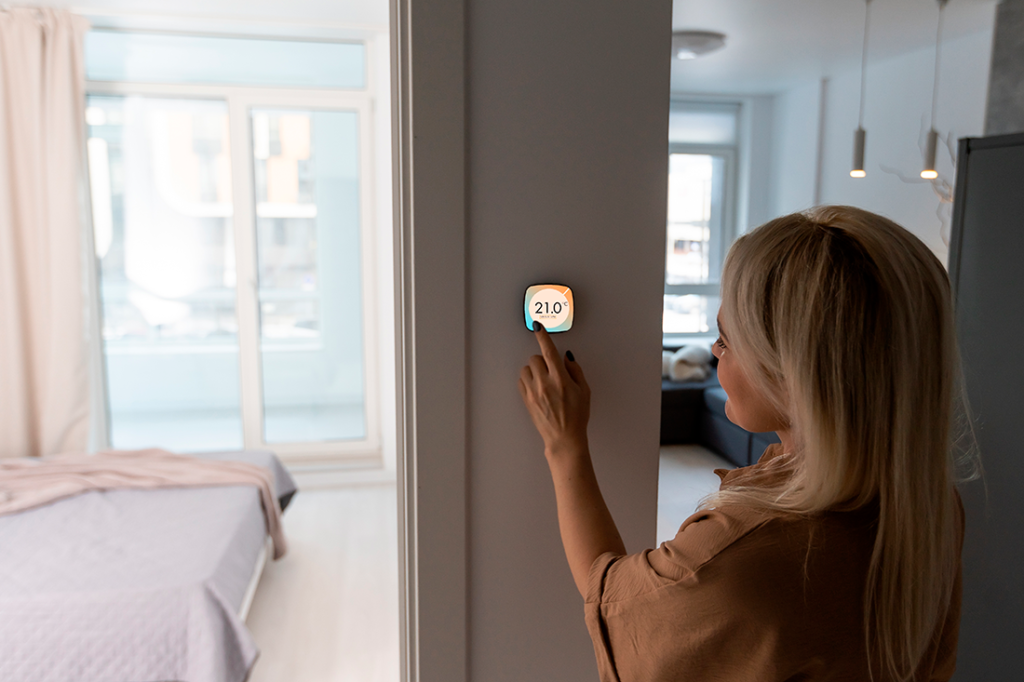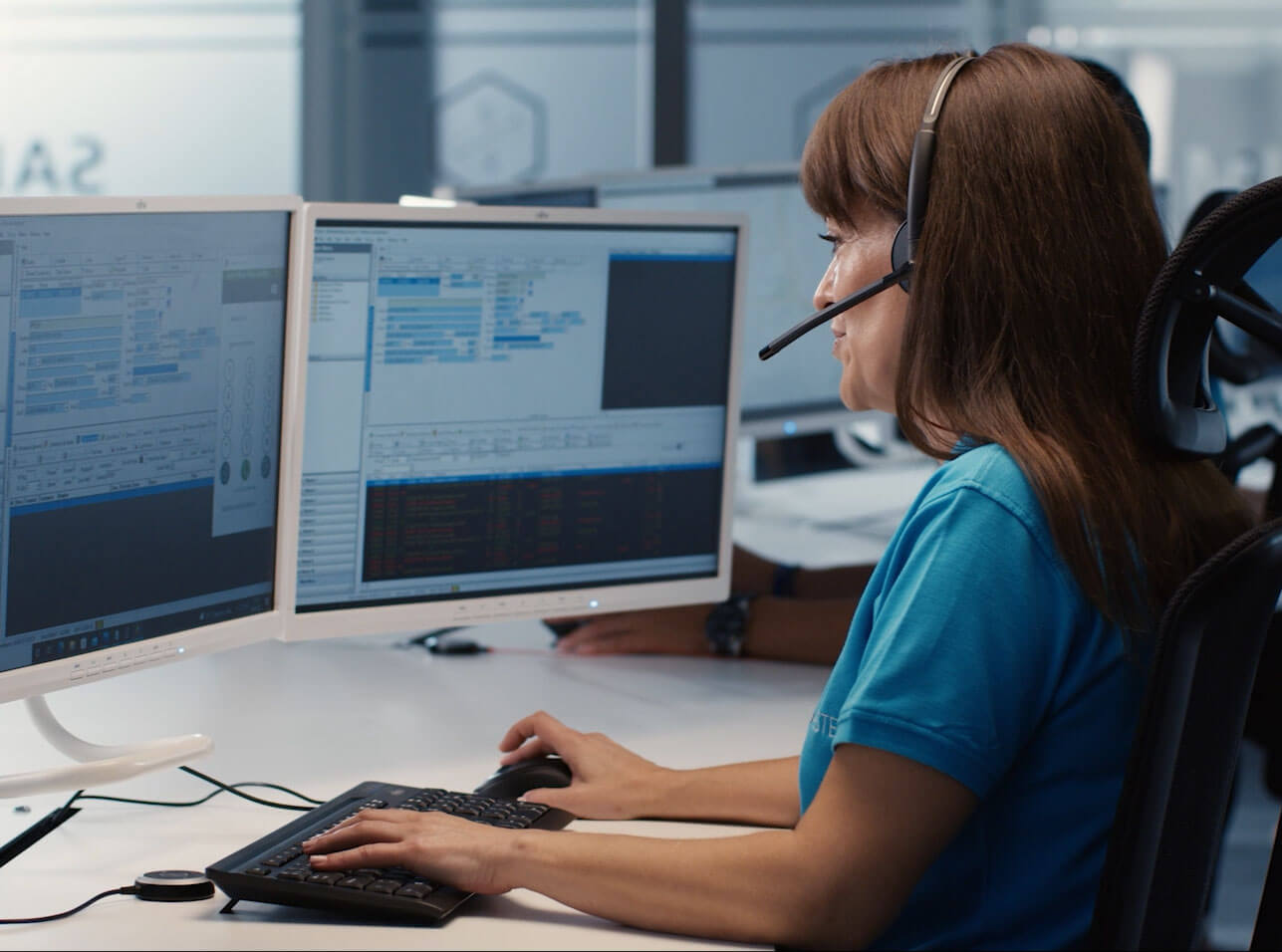Technological advances are transforming the way seniors live in their own homes, providing them with greater comfort, safety and well-being. A wide range of technological devices have become indispensable allies in improving the quality of life of seniors by helping them overcome the challenges associated with aging.
One of the most common and beneficial devices are personal monitoring and assistance systems. These systems include motion sensors, security cameras and alarms that help detect any risky situation, such as falls or medical emergencies, and automatically alert caregivers or emergency services, such as those of SICOR telecare El Corte Inglés. Smart watches or bracelets have also become popular to ensure the safety of older adults, both inside and outside the home.
Another technological device that makes life easier for the elderly is telecare systems. These systems allow older adults to communicate with healthcare professionals or caregivers through their mobile devices.
What is home automation for the elderly?
Home automation for the elderly is a branch of home automation that focuses on the design and implementation of technological systems to improve the quality of life, safety and autonomy of the elderly. The main objective of home automation for the elderly is to provide solutions that allow them to live independently at home for as long as possible.
These home automation systems can include a variety of devices and technologies that are integrated into the home environment to facilitate daily activities and provide assistance in emergency situations. Therefore, it is important to emphasize that these systems must be intuitive and easy to use, taking into account the possible physical or cognitive limitations that the elderly may have.
What are the benefits of home automation in homes for the elderly?
Home automation in homes for the elderly can provide a number of significant benefits. Some of the most prominent benefits are:
- Enhanced security: Home automation systems can include advanced security features, such as security cameras, motion sensors and alarm systems. These features help protect seniors from burglaries, intruders and dangerous situations.
- Health monitoring: Home automation can integrate medical devices and sensors to monitor the health of the elderly, such as blood pressure, heart rate or blood glucose levels. This allows for continuous health monitoring and early detection of any medical problems.
- Emergency assistance: Home automation systems can be equipped with emergency buttons and call systems to quickly summon help in the event of a medical emergency or other hazardous situation.
- Greater autonomy: Home automation can facilitate the daily life of the elderly by automating tasks, such as turning lights on and off, temperature control, opening doors, among others. This allows them to maintain their autonomy and perform daily activities more easily.
- Improved comfort and convenience: Home automation systems can automatically adjust lighting, temperature and other aspects of the home environment according to individual preferences. This provides an environment tailored to the needs of the elderly.
- Energy savings: Home automation can optimize energy consumption in the home by regulating the use of household appliances and HVAC systems efficiently. This not only reduces energy costs, but also contributes to sustainability and environmental protection.
Types of home automation systems for the elderly and how they can help them
There are several types of home automation systems that can be useful for the elderly, such as:
- Lighting control: Home automation systems allow lights to be controlled automatically or remotely. This can be especially beneficial for elderly people with reduced mobility, as they will not have to make much effort to turn the lights on or off. In addition, lighting schedules can be programmed and the intensity can be adjusted to create a more comfortable and safe environment.
- Temperature control: Home automation systems can regulate the temperature of the home automatically and programmed. This makes it easier for the elderly to maintain a comfortable environment without having to worry about manually adjusting the thermostat. In addition, temperature sensors can be implemented to avoid extremes of heat or cold.
- Security and surveillance: Home automation systems offer security features such as surveillance cameras, motion sensors, alarms and smart locks. These features help protect the elderly against burglaries, intruders and dangerous situations. In addition, alarm systems can send notifications to family members or emergency services if suspicious activity or falls are detected.
- Medical assistance: Home automation systems can integrate medical devices, such as blood pressure monitors, glucose tracking devices, or emergency call systems. These devices can help the elderly monitor their health and send alerts to family members or medical services in case of need. For example, for people with cognitive diseases, such as dementia or Alzheimer's disease, they can be very useful.
- Assistance in daily activities: Home automation systems can be programmed to assist in daily tasks, such as medication reminders, routine monitoring and control of household appliances. These functions help the elderly maintain their autonomy and make it easier for them to perform daily activities.
- Communication and connectivity: Home automation systems can include communication features, such as video calls or voice messages, to facilitate communication with family members, caregivers or health care services. In addition, virtual assistant devices can be integrated to obtain information, ask questions or receive reminders.
In conclusion, SICOR telecare El Corte Inglés is an excellent option to provide peace of mind to the relatives of the elderly, since, thanks to its telecare system, it offers constant monitoring and a rapid response to emergencies, ensuring the safety and well-being of loved ones.

